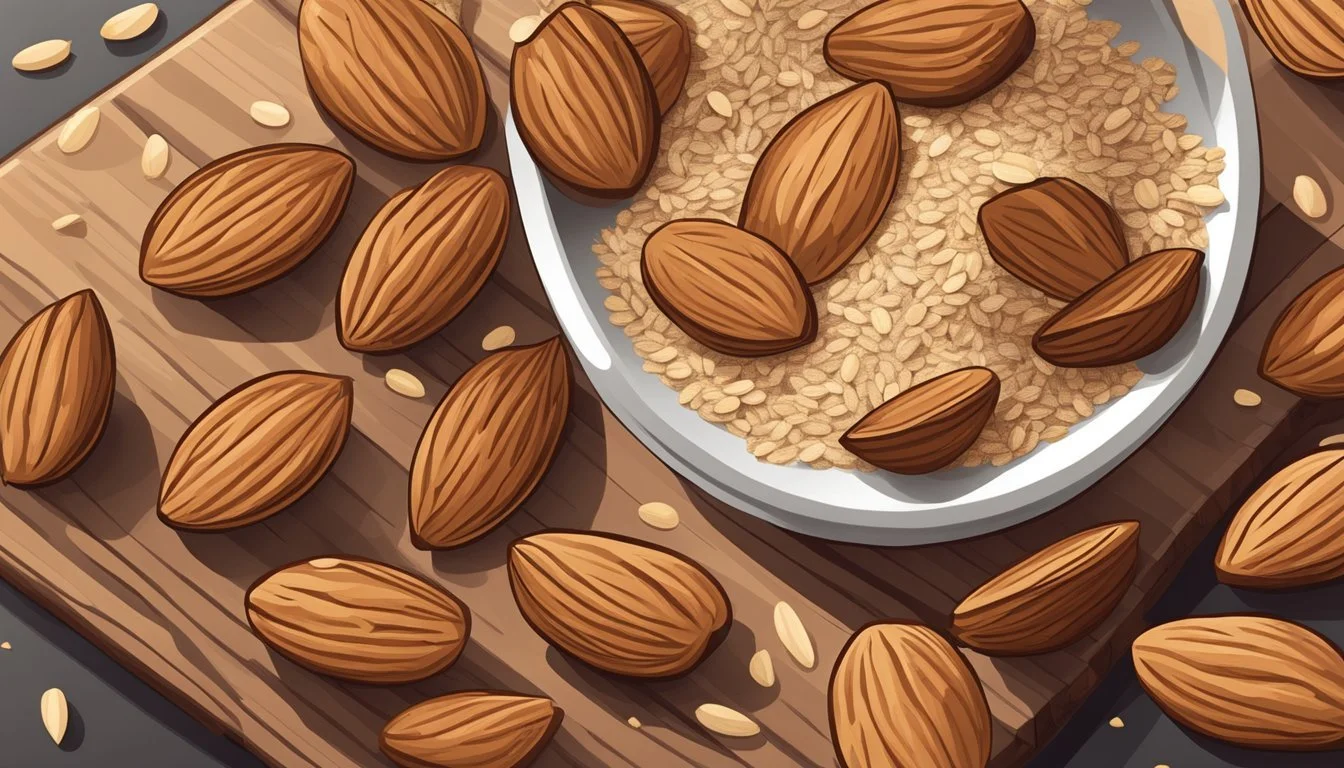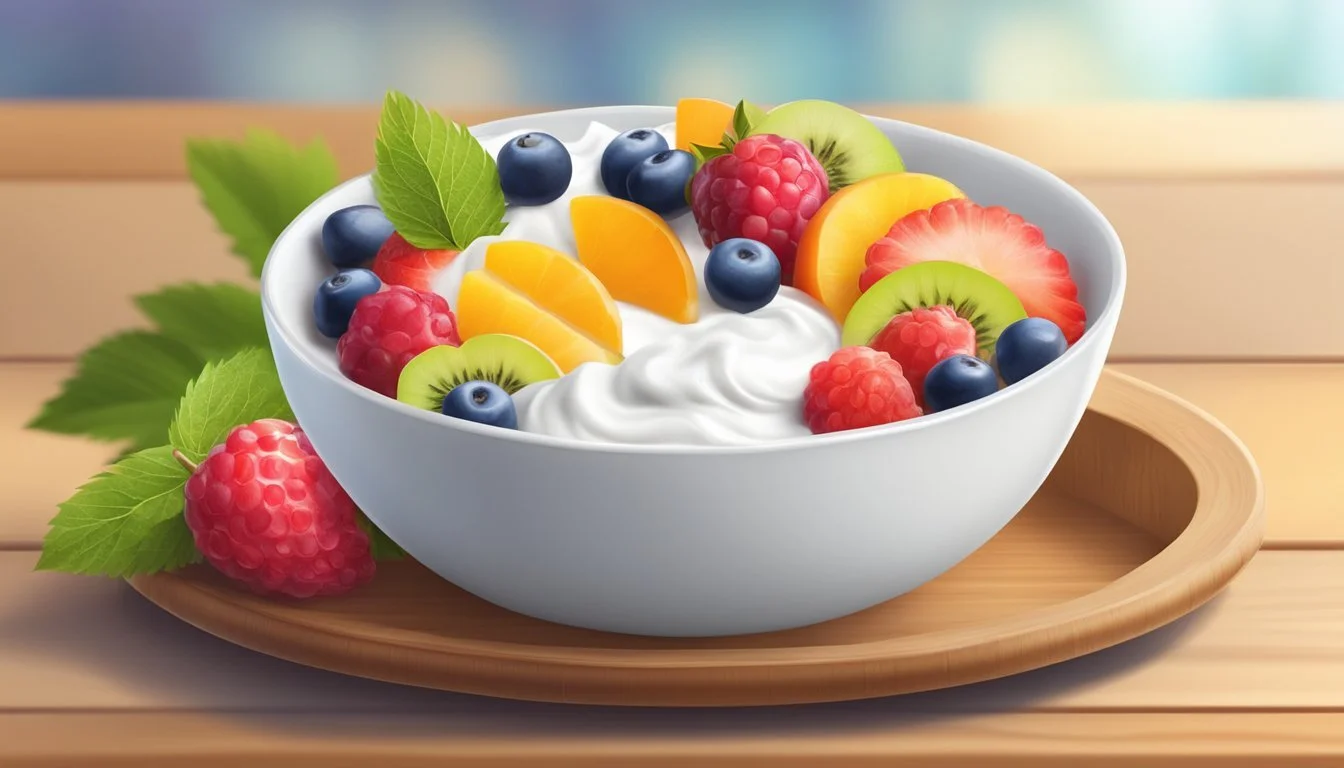Foods High in Vitamin B2 (Riboflavin)
Top Sources of Riboflavin Explained
Riboflavin, also known as vitamin B2, is a crucial nutrient that plays a significant role in the body's energy production and cellular function. It is a water-soluble vitamin that the body regularly needs and cannot store in large amounts, necessitating a diet that includes an adequate intake of riboflavin-rich foods.
Understanding which foods are high in vitamin B2 can help individuals meet their daily nutritional needs more effectively. A balanced diet that includes sources of riboflavin can promote overall health and well-being, as this vitamin is essential for growth, red blood cell production, and the maintenance of good health.
1) Liver
Liver is a rich source of riboflavin, also known as vitamin B2. This nutrient plays a crucial role in energy production and the metabolism of fats, drugs, and steroids.
A 100-gram portion of beef liver contains approximately 3 mg of riboflavin, exceeding the daily recommended intake for most adults. This makes liver one of the most concentrated food sources of vitamin B2 available.
Liver from other animals, such as chicken and lamb, also provides high amounts of riboflavin. Aside from vitamin B2, liver is packed with other essential nutrients, including vitamin A, iron, and folate.
Eating liver periodically can help in maintaining adequate riboflavin levels, supporting overall metabolic function. Given its nutrient density, liver can be a valuable addition to a balanced diet.
2) Kidney
For individuals with kidney concerns, managing vitamin intake is crucial. Some vitamins, such as riboflavin (B2), play a vital role in maintaining overall health, but kidney function must be considered.
In chronic kidney disease (CKD), certain nutrients, including riboflavin, need careful monitoring. While riboflavin supports energy production and cell function, kidney disease can affect how the body processes this vitamin.
Foods high in riboflavin include dairy products, leafy greens, and some meats. For those with kidney issues, Greek yogurt is an excellent choice due to its balanced nutritional profile. It provides essential B vitamins, including a significant amount of riboflavin, which can be beneficial when consumed in moderated portions.
Managing the portion sizes of riboflavin-rich foods is key. Overconsumption of protein sources can strain the kidneys, making it necessary to find a balance that supports vitamin intake without negatively impacting kidney function. Consulting with healthcare professionals can help tailor dietary choices to ensure adequate riboflavin intake while protecting kidney health.
3) Milk
Milk is a nutritious beverage widely consumed across the globe. It provides a good amount of riboflavin, also known as vitamin B2, which is essential for energy production and cellular function.
A single cup of whole milk contains approximately 0.4 milligrams of riboflavin, contributing around 31% of the daily value. This makes milk a practical and accessible source of vitamin B2.
Aside from riboflavin, milk offers other vital nutrients, including calcium, protein, and vitamin D. These contribute to overall health by supporting bone density, muscle function, and immune system strength.
Incorporating milk into the diet is easy, whether consumed directly or used in cooking and baking. Both children and adults can benefit from its nutrient profile. For those who are lactose intolerant, lactose-free milk options are available, providing the same riboflavin benefits without the digestive discomfort.
4) Cheese
Cheese is a notable source of riboflavin (Vitamin B2), contributing to a balanced diet when consumed in moderation. Different types of cheese contain varying amounts of riboflavin.
For example, cheeses such as Swiss and Parmesan are particularly rich in this essential vitamin. Swiss cheese provides around 0.1 mg of riboflavin per ounce, equating to about 8% of the daily value.
Including cheese in meals can help boost riboflavin intake. Cheese also offers other nutrients like calcium, making it a beneficial addition to a diverse diet.
It's important to consider the fat content of cheese, particularly for those monitoring cholesterol levels. Opting for low-fat or reduced-fat varieties can provide riboflavin without excessive saturated fat.
5) Eggs
Eggs are an excellent source of riboflavin, also known as vitamin B2. One large egg provides around 15% of the recommended daily value.
In addition to riboflavin, eggs are rich in other B vitamins including pantothenic acid (B5) and Cyanocobalamin (B12). They are also a notable source of high-quality protein and essential amino acids.
Beyond vitamins, eggs contribute important minerals like selenium, iron, and phosphorus. This combination makes them a versatile and nutritious food that supports various bodily functions.
Their availability and versatility in recipes further enhance their appeal. Whether boiled, scrambled, or included in dishes, eggs remain a convenient and nutritious choice for many.
6) Mushrooms
Mushrooms are an excellent source of riboflavin, also known as Vitamin B2. They offer a nutrient-dense option for those looking to boost their B2 intake naturally.
White button mushrooms contain a significant amount of riboflavin. Just one cup of cooked white button mushrooms provides 36 percent of the daily value.
Portobello mushrooms also stand out as a riboflavin-rich food. They are fat-free, low in calories, and offer many additional nutrients beyond B2.
Including mushrooms in your diet can contribute to your overall intake of essential B vitamins. Whether sautéed, grilled, or added to soups, they are versatile and nutritious.
7) Almonds
Almonds are a nutrient-dense snack that offers a notable amount of vitamin B2, also known as riboflavin. Just one ounce of almonds provides approximately 24.6% of the daily value for riboflavin. This makes them a practical and healthy option for boosting your intake of this essential vitamin.
In addition to riboflavin, almonds are rich in other nutrients like healthy fats, protein, and vitamin E. These components make almonds a well-rounded addition to any diet.
Almonds can be easily incorporated into a variety of meals and snacks. They add a pleasant crunch to salads and can be used as a topping for oatmeal or yogurt. For a quick snack, a handful of almonds pairs well with fresh fruit such as an apple or grapes.
Including almonds in your diet can help support overall health, thanks to their diverse nutrient profile. This small but mighty nut is a convenient way to consume more riboflavin and enhance your nutritional intake.
8) Spinach
Spinach is an excellent source of riboflavin, also known as vitamin B2. A cup of cooked spinach provides about 33 percent of the daily value for this essential nutrient. This dark leafy green supports energy production and overall cellular function.
In addition to riboflavin, spinach is rich in other vitamins and minerals. It contains iron, which is crucial for oxygen transport in the blood. Spinach is also high in vitamin C, which aids in the absorption of plant-based iron.
Spinach can be easily incorporated into various meals. It can be added to salads, smoothies, soups, and stews. Cooking spinach reduces its volume significantly, making it easier to consume in larger amounts.
For those looking to boost their riboflavin intake, regular consumption of spinach can be a beneficial addition to their diet. This versatile vegetable not only enhances nutritional intake but also adds flavor and texture to dishes.
9) Yogurt
Yogurt is a nutrient-dense food that is a good source of riboflavin (Vitamin B2). It is made by fermenting milk with bacteria, which not only enhances its flavor but also boosts its nutritional profile.
A typical serving of yogurt offers a significant portion of the daily recommended intake of riboflavin. For instance, an 8-ounce cup of plain low-fat yogurt provides around 0.52 mg of Vitamin B2, contributing to approximately 40% of the daily value.
Greek yogurt, known for its thicker consistency and richer taste, is particularly notable for its riboflavin content. Per cup, Greek yogurt can offer up to 44% of the daily value for Vitamin B2, making it an excellent choice for those seeking to increase their intake.
Incorporating yogurt into daily meals is simple and versatile. It can be enjoyed on its own or used in various recipes. Adding fresh fruit, nuts, or honey can enhance its flavor while also increasing the nutritional benefits.
Yogurt also provides other essential nutrients, including protein, calcium, and probiotics, making it a valuable addition to a balanced diet.
10) Salmon
Salmon is a highly nutritious fish that ranks well as a source of riboflavin (Vitamin B2). A 3.5-ounce serving of salmon provides approximately 0.13 mg of Vitamin B2. This makes it a reliable option for those looking to increase their intake of this essential nutrient.
In addition to riboflavin, salmon is also rich in other B vitamins such as B6 and B12. These vitamins play crucial roles in energy production and red blood cell formation. Consequently, incorporating salmon into one's diet can offer multiple health benefits beyond just riboflavin.
Salmon is available in various forms, including fresh, canned, and smoked. Each type retains its riboflavin content, making it easy to include in a range of dishes like salads, sandwiches, and main courses. Opt for wild-caught salmon when possible, as it typically contains fewer contaminants.
Preparing salmon is straightforward. It can be grilled, baked, or pan-seared while retaining its nutrient profile. Simple seasoning with herbs and a bit of olive oil can enhance its flavor without adding unhealthy fats.
It is also worth noting that salmon is rich in omega-3 fatty acids, which support heart health. Integrating salmon into the diet can be a delicious and effective way to obtain vital nutrients.
Understanding Vitamin B2
Vitamin B2, also known as riboflavin, plays a crucial role in maintaining overall health by facilitating key biochemical reactions and supporting various physiological functions.
What Is Vitamin B2?
Vitamin B2, or riboflavin, belongs to the B vitamins group. It is a water-soluble vitamin, which means it cannot be stored in the body and must be consumed regularly through diet. Riboflavin is found naturally in foods and can also be taken as a dietary supplement. Common sources include meat, dairy products, leafy greens, and nuts.
The daily value for riboflavin is set at 1.3 mg for adults. Foods like beef, fish, and eggs are particularly high in this vitamin. Certain vegetables, like spinach and mushrooms, also contribute significantly to daily intake.
Role in the Human Body
Riboflavin is vital for energy production. It helps convert carbohydrates, fats, and proteins into energy by acting as a coenzyme in the metabolism process. Riboflavin assists in the growth and development of cells and supports normal cellular function.
It also plays a role in the maintenance of the skin, eyes, and nerves. Additionally, riboflavin aids in the breakdown of drugs and other substances in the liver, thus contributing to detoxification. Low levels can lead to symptoms such as sore throat, redness of the lining of the mouth, and cracks at the corners of the mouth. Regular adequate intake is essential for maintaining optimal health.
Health Benefits of Foods Rich in Vitamin B2
Foods rich in Vitamin B2, or riboflavin, offer multiple health benefits. These benefits include aiding in energy production and supporting necessary cellular functions.
Promotes Energy Metabolism
Riboflavin plays a crucial role in converting nutrients into energy. It helps break down carbohydrates, proteins, and fats, thereby facilitating energy production. Without sufficient riboflavin, the body cannot efficiently convert food into usable energy, hampering physical and mental performance.
Lean meats such as beef skirt steak provide a healthy dose of riboflavin. A 4-ounce serving can supply 27% of the daily value. Other sources include milk, eggs, and fish. Incorporating these foods ensures that the body has the vitamin B2 it needs to maintain optimal energy levels throughout the day.
Supports Cellular Function
Vitamin B2 is essential for cellular function, particularly for the growth and development of body tissues. Riboflavin helps maintain healthy skin, eyes, and nerves. It also plays a crucial role in producing red blood cells, which carry oxygen throughout the body.
Foods high in riboflavin include almonds, spinach, and mushrooms. Regular consumption of these foods helps prevent conditions such as cataracts and certain types of cancer. By supporting cellular function, riboflavin contributes to overall health and well-being. Incorporating a variety of riboflavin-rich foods helps ensure the body functions at its best.
How to Incorporate B2-Rich Foods into Your Diet
Incorporating B2-rich foods into your diet can be simplified by using tips on meal planning and cooking. This will ensure you meet your daily riboflavin needs without much hassle.
Meal Planning Tips
Start by identifying foods high in riboflavin, such as lean beef, avocados, eggs, milk, and turkey breast. Create a weekly meal plan incorporating these foods at least once a day.
For breakfast, consider scrambled eggs or a smoothie with milk and avocado. Lunch options could include a turkey breast sandwich or a salad with egg whites. Dinner might feature lean skirt steak with a side of steamed vegetables rich in B vitamins.
Keep a grocery list handy, highlighting B2-rich foods. Planning your meals around these foods ensures consistent intake without last-minute shopping.
Cooking Tips and Recipes
When cooking B2-rich foods, retain their nutrient content by using proper methods. Avoid overcooking, as riboflavin can be sensitive to light and water. Steaming or grilling lean meats like beef skirt steak preserves their nutritional value.
Try simple recipes like a turkey breast stir-fry with vegetables or an avocado and egg sandwich. For a snack, mix Greek yogurt with nuts and fruits high in B2.
Experiment with new recipes, rotating your protein sources to include a variety of riboflavin-rich foods. This not only diversifies your diet but also ensures you receive a broad spectrum of other nutrients essential for health.





